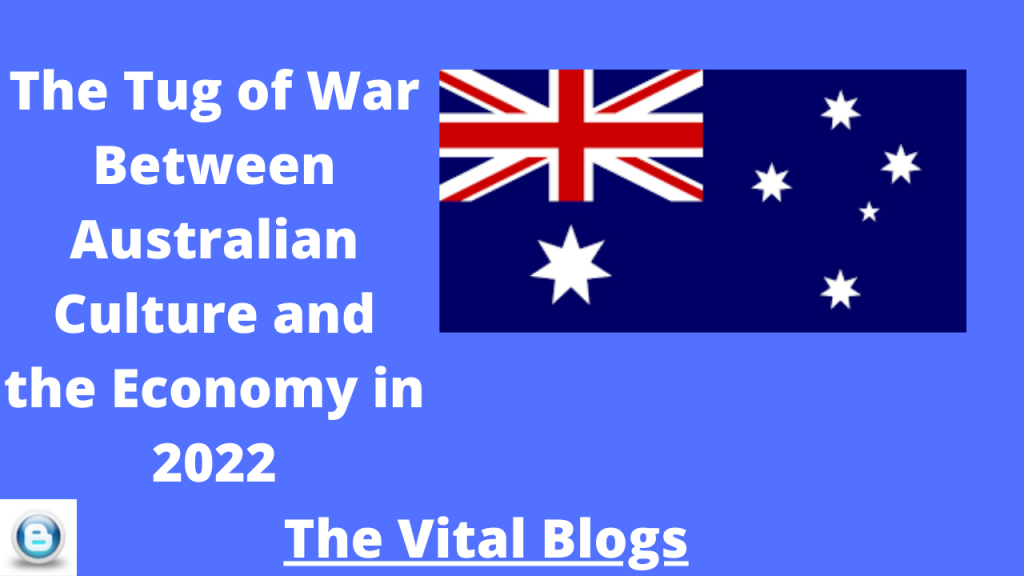
The Tug of War Between Australian Culture and the Economy in 2022.For more than a decade, Australian culture has been at odds with the country’s economy. Australia’s rapid economic growth and expansion has made the country one of the wealthiest in the world, but it has also put stress on its culture, which was based on more modest beginnings just 50 years ago. The growth has brought many positive developments to the country, but there have also been changes that have divided citizens and even caused conflict between people who used to be close friends and neighbors. In 2022, will Australia’s economy continue to overshadow its culture or will it strike a balance?
How Australia Performed Economically in 2022
Australia has always been strong economically. It has only taken a minor dip when other countries crashed with the financial crisis, which was quickly corrected, but there are other things happening that Australia needs to keep an eye on if it wants to remain prosperous. The difference between Australian culture and Australia’s economy could play a significant role in what is to come for this country. The trend for many Australians is for them to start spending less money at home on clothing, food, entertainment and more on holidays abroad where they can indulge their interests at lower cost because there is no such thing as exchange rates or tariffs on imports. If this becomes a trend among many Australians then it will lead to much higher imports into Australia which will eventually force higher prices domestically because fewer people are buying locally.
2) How Australia Became More Competitive Globally
Australia has always been seen as a place with a laid-back culture, but over the last few years its competitive economy has been growing. In 2016, Australia had its best run of economic growth since 2006, exceeding two percent. According to KPMG, they are projecting that by 2020 Australia will be one of the three largest economies in terms of nominal GDP per capita behind Norway and Switzerland. The nation’s middle class is flourishing: incomes are expected to grow an average 7% over 10 years from 2008 to 2018, versus 2% for Americans. Furthermore, house prices have doubled in Melbourne (Australia’s second most populous city) with about a third-of-a-million more people living in the city compared to six years ago.
3) What Is Happening Right Now In Australia
As Australia’s culture becomes more liberal, Australians are finding themselves increasingly divided on what it means to be Australian. These days you’re as likely to hear you’re not really from here, mate as aye, mate. While immigration is one cause for this divide, it’s easy to forget that many people were born and raised in Australia who identify with a different culture. They still speak English, work alongside migrants from all over the world, or do jobs which don’t require fluency. Given that roughly 70% of Australians voted for Tony Abbott’s tough-on-immigration policies during his administration (2013-2015), this xenophobia has historically been seen as a major player in shaping Australia’s cultural identity.
4) What Is Going To Happen In future 2030
In future 2030, just like now, there will be this tug-of-war between what Australians want to do and the economy. That is, we’ll want to save for retirement with lower inflation, but it’ll still be difficult because Australians might work at smaller firms with poorer benefits. There are ways around this too: such as planning for a higher retirement age or decreasing employer contributions. It might also make sense to put some money into other investments for a safe return over time.
5) Where Does Australia Go From Here?
Australia has always had a strong sense of culture that shaped their economy, but with the rapid changes happening throughout their society, it’s hard to say what will happen. As they lose more jobs due to automation and other pressures, they’re spending less time thinking about where they’ll work and more time figuring out how to maintain their lifestyle. Many are trying to change expectations by sticking with jobs they don’t love, while others have moved away from that mentality altogether–instead choosing meaningful work over an impressive paycheck. What will Australia look like ten years from now?
6) Conclusion
With a bright future ahead, it will be up to Australians to decide how best to balance their cultural values with the economy. New immigrants will be looking for guidance on how they can adopt aspects of Australian culture while integrating into society. Businesses need to consider how this change will affect their bottom line, before they jump blindly into focusing solely on profit. Cultural organisations are already figuring out strategies to maintain that balance – with greater success than many business leaders might expect.








